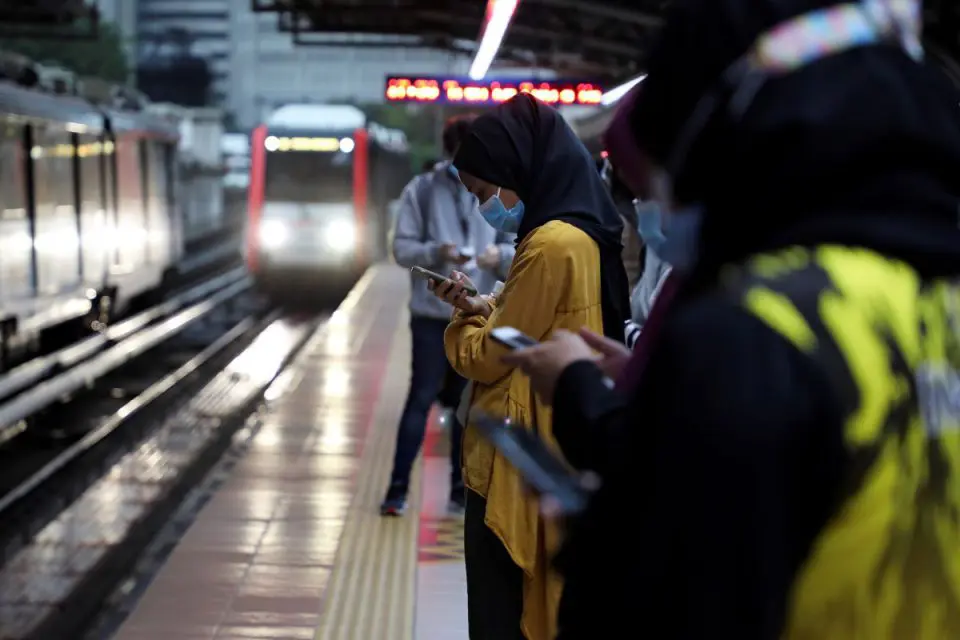KUALA LUMPUR, Jan 18 — The inaugural Asean Digital Ministers’ Meeting (ADGMIN1) will serve as an ideal platform for decision-makers to discuss on actions to accelerate digital transformation in respective member countries and in the region as a whole to meet the new changes brought by the Covid-19 pandemic.
Indonesia’s Ambassador to Malaysia, Hermono, said digital technologies have become a critical enabler of connectivity facilitating the continuity of people’s daily lives during the global pandemic.
“I believe this meeting is a forum for the exchange of views and policies related to the use of the spectrum for telecommunication purposes, as well as matters related to the telecommunications industry in the Southeast Asian region,” Hermono said in a written interview with Bernama in conjunction with the ADGMIN1 and related meetings from January 18-22, hosted by Malaysia.
Themed ‘Asean: A Digitally Connected Community’, the meeting seeks to strengthen cooperation among Asean countries towards building digital ecosystems as a pillar in the post-Covid-19 development plan.
Asean, founded in 1963, is a regional intergovernmental organisation comprising 10 nations – Brunei, Cambodia, Indonesia, Laos, Malaysia, Myanmar, the Philippines, Singapore, Thailand and Vietnam.
Hermono said that among the highlights of the inaugural Asean Digital Ministers’ Meeting would be the use of better digital services by Asean, which will allow Asean Member States economies to recover faster from the Covid-19 pandemic.
Towards this, he said one of the points that should be addressed in the meeting is the importance of building trust as the basis to encourage the community to adopt digital transformation.
“At this stage, Indonesia will put its concern on Digital Transformation.
“The Industrial Revolution 4.0 has brought significant changes to various aspects of human life; we can now clearly observe how this change has become a powerful phenomenon that cannot be stopped throughout 2020 that we have just passed; world companies and also in Indonesia are competing in innovating to win the market competition.
“Therefore, the Asean Digital Ministers’ meeting perhaps could promote the acceleration of digital transformation and developing sustainable digital ecosystem,” he said.
Sharing Indonesia’s experience on digital transformation, Hermono said the Indonesian government pays great attention to the development of digital economy growth and is making proactive policy steps to strengthen digital transformation in the republic.
“In this context, the Ministry of Communications and Informatics of the Republic of Indonesia (MCI RI) prioritise in building and developing ICT infrastructure for equitable access and broadband connectivity throughout Indonesia.
”Moreover, MCI RI is encouraging digital transformation in the economic and government sectors, as well as preparing digital ecosystems and digital talent,” he said.
The ambassador said this includes formulating a national digital transformation roadmap to guide ten relevant sectors – government, industries, education, health, commerce, financial services, properties, media and entertainment, tourism, and agriculture and fisheries.
The government also aims to develop regulations and funding mechanisms to spur the digital economy, such as drafting the bill on Personal Data Protection and Job Creation Law in the telecommunications and broadcasting sector.
A National Data Centre will also be established by 2023, he said.
Equally important, he said the government also emphasises on the supply and sustainable development of human resources in the digital field.
He added that the government is also focusing on expanding internet access and improving digital infrastructure, including developing high-speed internet infrastructure in more than 12,500 villages or sub-districts, which will be the catalyst to various startups dominated by millennials, both based on culinary, services and online trade.
Hermono said based on the data from the Central Bureau of Statistics, the communications and informatics sector had contributed 4.25 per cent to Indonesia’s GDP, while the sector, as the main element in driving the digital economy, has a growth rate that is always above the national GDP growth rate.
In 2019, he said, the growth was 9.41 per cent above the national GDP which grew by 5.02 per cent.
“The communications and informatics sector can be an enabler sector to generate growth-enhancing effects in other sectors, as well as could help restore Indonesia’s economy which is impacted by the Covid-19 pandemic,” he said.
According to Indonesia’s Communications and Informatics Ministry, a survey conducted in 2020 showed that internet users in the republic had grown to 196.7 million, with a population penetration rate of 73.7 per cent.
The latest figure was an increase of 8.9 per cent from two previous surveys, Hermono said.
— Bernama





